How to choose the right pet fish – a beginner's guide
Become an armchair aquarist with this guide to choosing the right pet fish
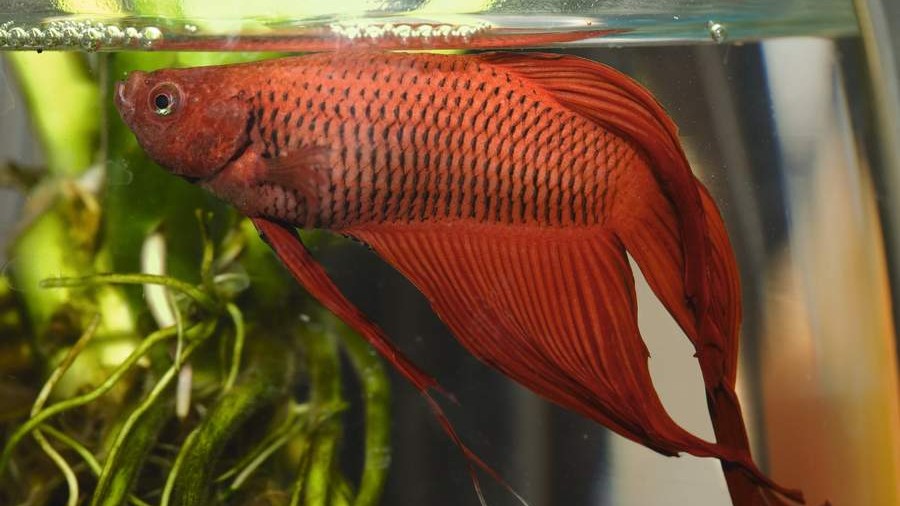
If a pet fish is on your radar, we've got all the details you could possibly need about your future aquatic friend. Fish can make beautiful additions to your home or outdoor space, adding color and beautiful water features to any place they're put. And while fish don't need to be walked or groomed, they're not complete maintenance, drop-em-anywhere kind of pets - there are still some things you should do in order to make sure everything goes swimmingly.
That's why we've got all the details here on how to set up the perfect aquarium or aquatic space for your future pet fish, different breeds of fish and what they need, fish food, and all the seaweed in between - you'll be ready for a pet fish in no time. Once you've decided, take a look at our guide to buying the best fish tank so you can find the perfect home for them.
- Best fish tank stand: Stylish and sturdy stands to show off your fish collection
- Best Fish Food 2020: the best diet for tank or pond fish
- Best fish feeder 2020: keep your fabulous fishies well fed
- Best tropical fish tanks 2020: Keep fishes from all around the world
Goldfish
Carassius auratus
Class: Actinopterygii
Diet: Omnivore
Lifespan: 5-10 years
Adult weight: 1.7oz
Golden and glorious, when treated well the humble goldfish is the perfect pet. Not only does it look wonderful, it’s inexpensive to keep. However, these fish deserve so much more than just a bowl. Unfortunately the typical goldfish bowl is actually the worst environment these fish could have. Goldfish are herbivores and produce a lot of waste, so they need a tank that’s well filtered and well aerated to ensure that they get enough oxygen and clean water. Bear in mind that these fish can also reach surprising sizes, so make sure you allow for growth when choosing your aquarium setup.
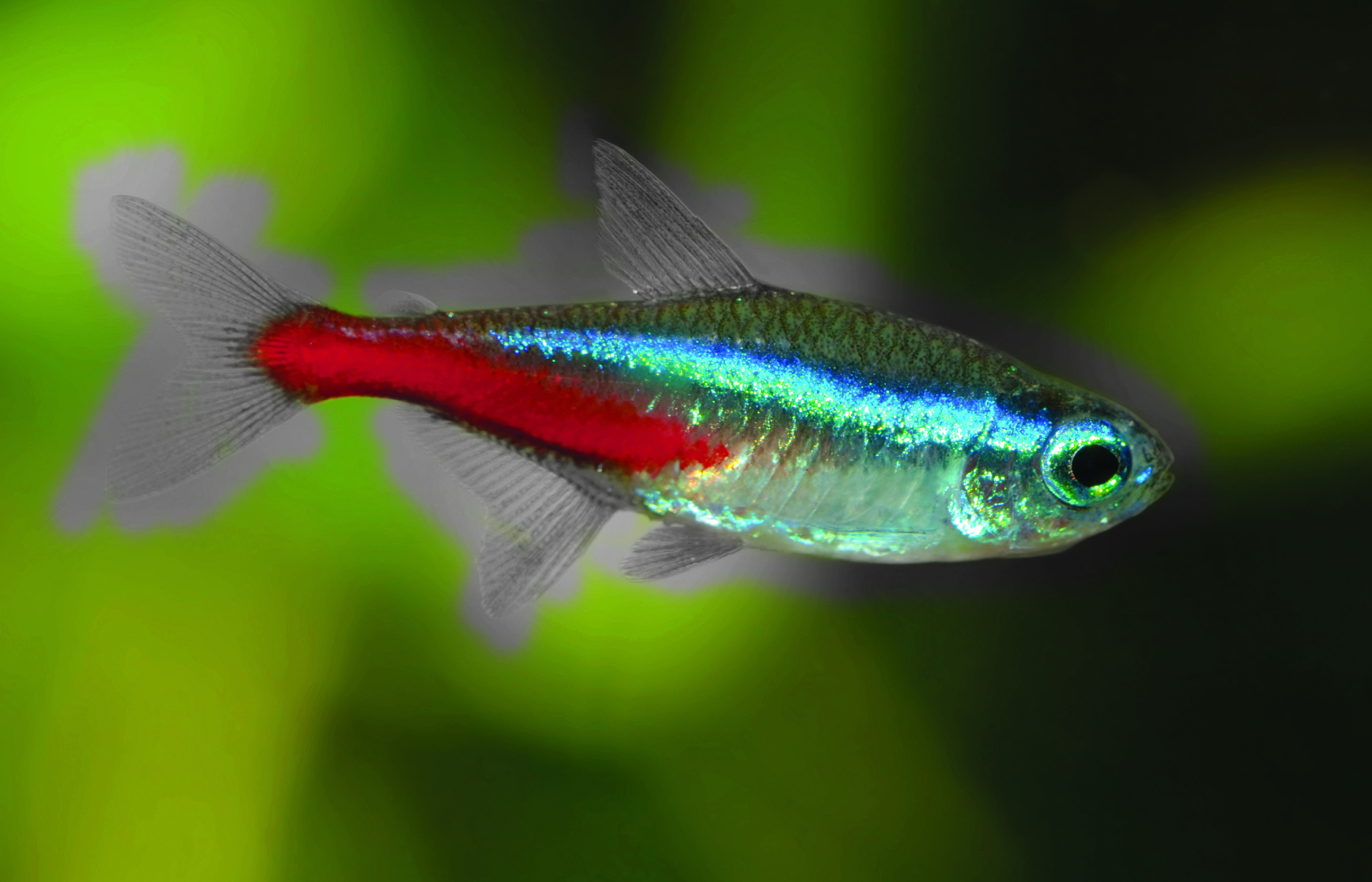
Neon tetra
Paracheirodon innesi
Class: Actinopterygii
Diet: Omnivore
Lifespan: Up to 5 years
Adult weight: 10g (0.4oz)
With a flash of iridescent blue and a shock of red, these tiny and colorful tropical fish can liven up any freshwater tropical aquarium. They’re native to South America, and are peaceful fish but ought not to be kept with larger, aggressive fish thanks to their small size. In the wild, neon tetras live in murky water, their colouring helps them keep together as a school They do best in schools of 10-15 individuals.
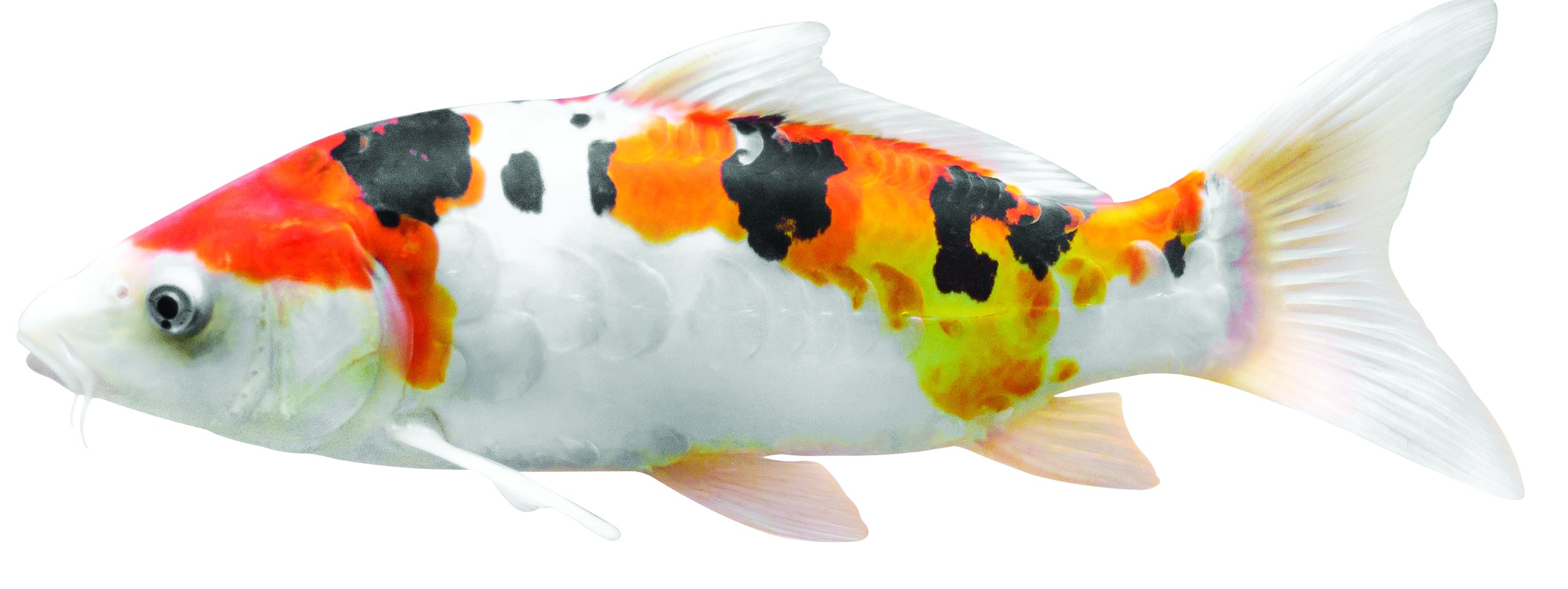
Koi Carp
Cyprinus carpio
Class: Osteichthyes
Diet: Omnivore
Lifespan: 25-30 years
Adult weight: 30lb
Koi carp – also known as nishikigoi carp – are variants of the common carp species. They originated in China, but it was the Japanese who bred the colour variants that have resulted in the beautiful markings on today’s koi fish! There are now many different variants to choose from, each with its own specific markings and characteristics.
Filling outdoor ponds with flashes of glorious orange colour, koi grow very fast and to substantial sizes. They require a large outdoor pond with enough depth for them to overwinter. Although they’re hardy fish, they also need plenty of pond maintenance as poor water quality is a common factor in koi health.
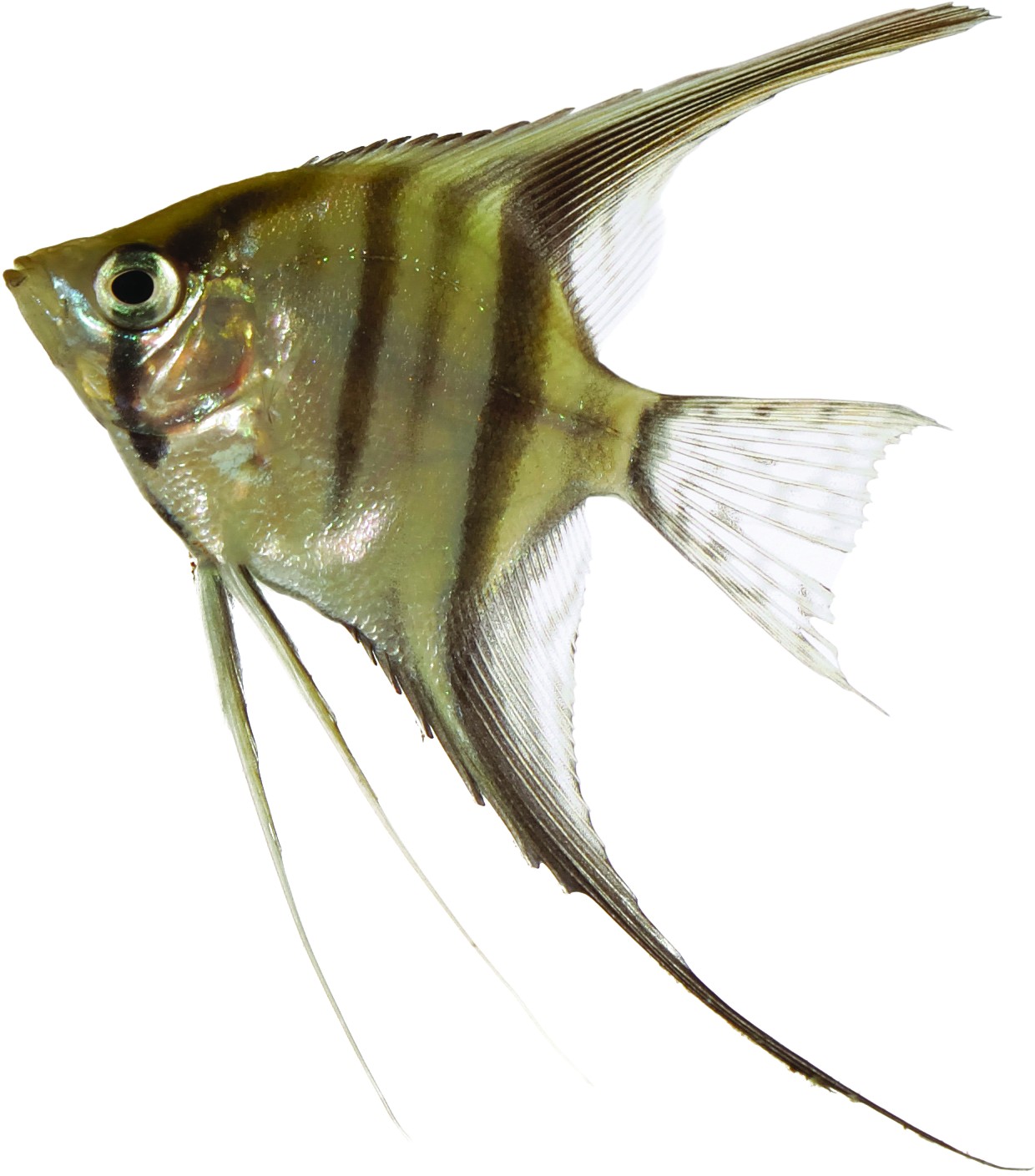
Angelfish
Pterophyllum scalare
Class: Actinopterygii
Diet: Carnivore
Lifespan: 10 years
Adult weight: 8.8oz
With their flattened disc-like bodies and long, elegant fins, these freshwater tropical fish are some of the most beautiful in any aquarium. These graceful fish prefer calmer waters to glide through, so ensure that your filtration system doesn’t produce a strong current, and when designing your tank be sure to avoid including any sharp objects. They also love to be in groups, so it’s best – as always – to ensure you have enough tank space for them to grow into as adults. Due to their shape, a tall, deep aquarium is better suited to keeping angelfish.
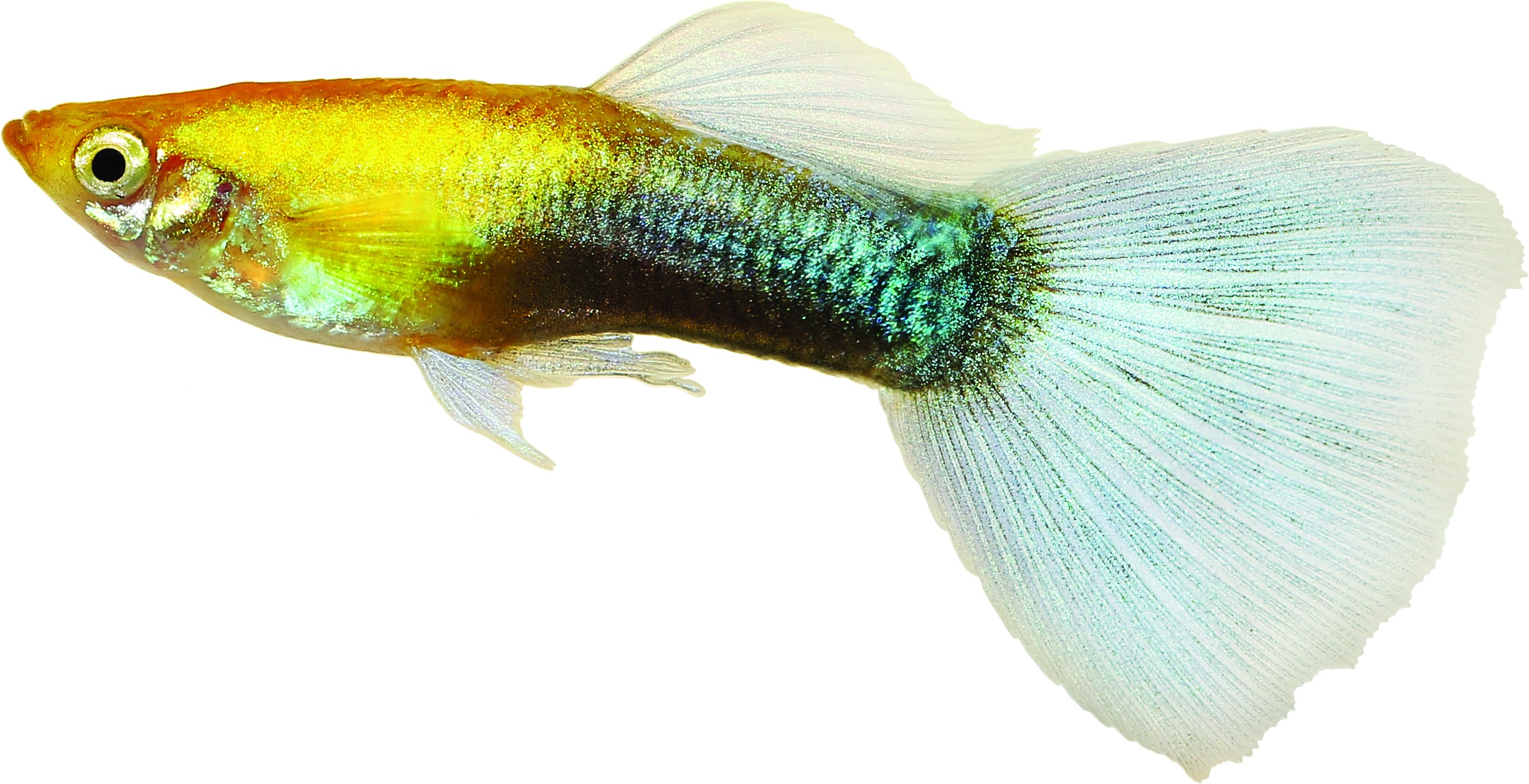
Guppy
Poecilia reticulata
Class: Actinopterygii
Diet: Omnivore
Lifespan: 1 year
Adult weight: 1.05oz
Affectionately known as ‘rainbow fish’, this species is a freshwater tropical fish. Thanks to their gorgeous colours and relative hardiness, not only do they make a tropical aquarium look exceptionally beautiful, they’re also easy to care for.
Guppies thrive in water around 17-28 degrees Celsius (62-82 degrees Fahrenheit). Like many other fish they love to forage, so gravel and plants in your aquarium will keep guppies happy. They live well in groups if the tank size is adequate, but males can harass females so opt for a 2:1 ratio to reduce stress.
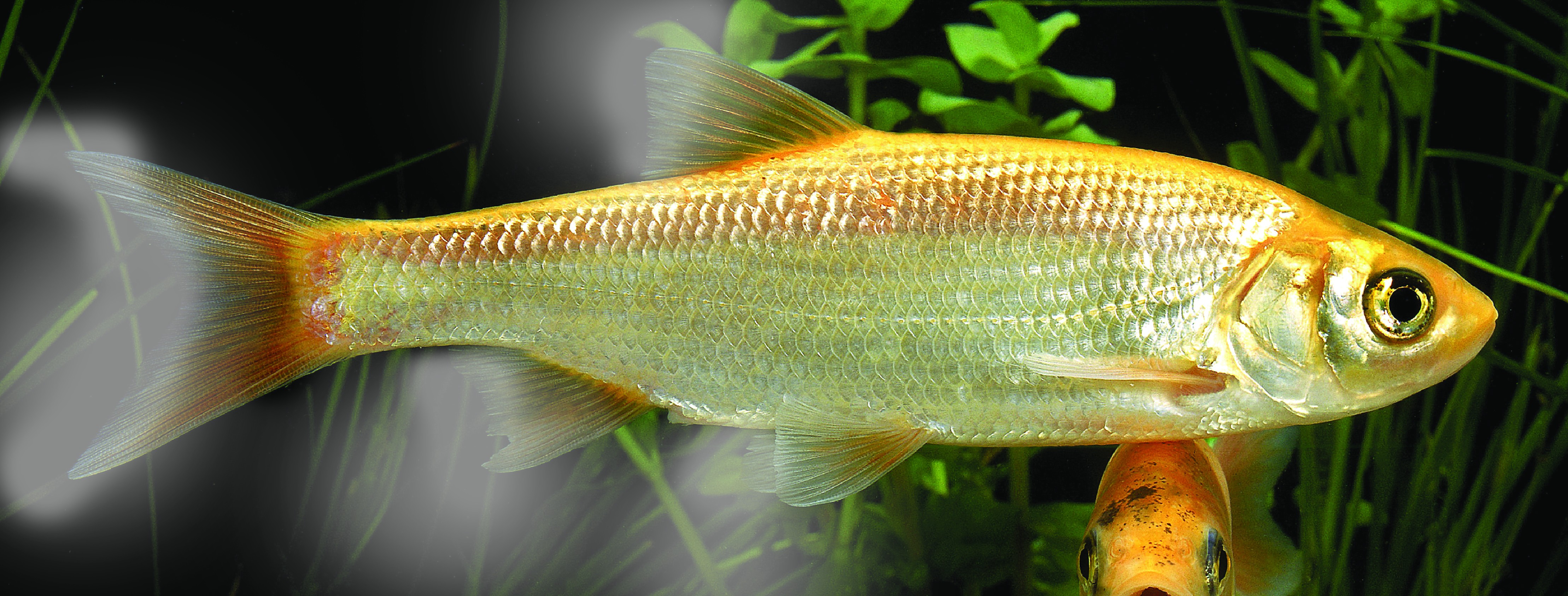
Golden orfe
Leuciscus idius
Class: Actinopterygii
Diet: Carnivore
Lifespan: 20+ years
Adult weight: 4.85lb
If you have a large outdoor pond with excellent oxygenation then these fish will fit in very well. As highly sociable creatures they like to live in schools of around six, but they need plenty of space. This fish loves to stay close to the surface, which makes for a brilliant pond but also means they need protection from hungry cats and passing herons.
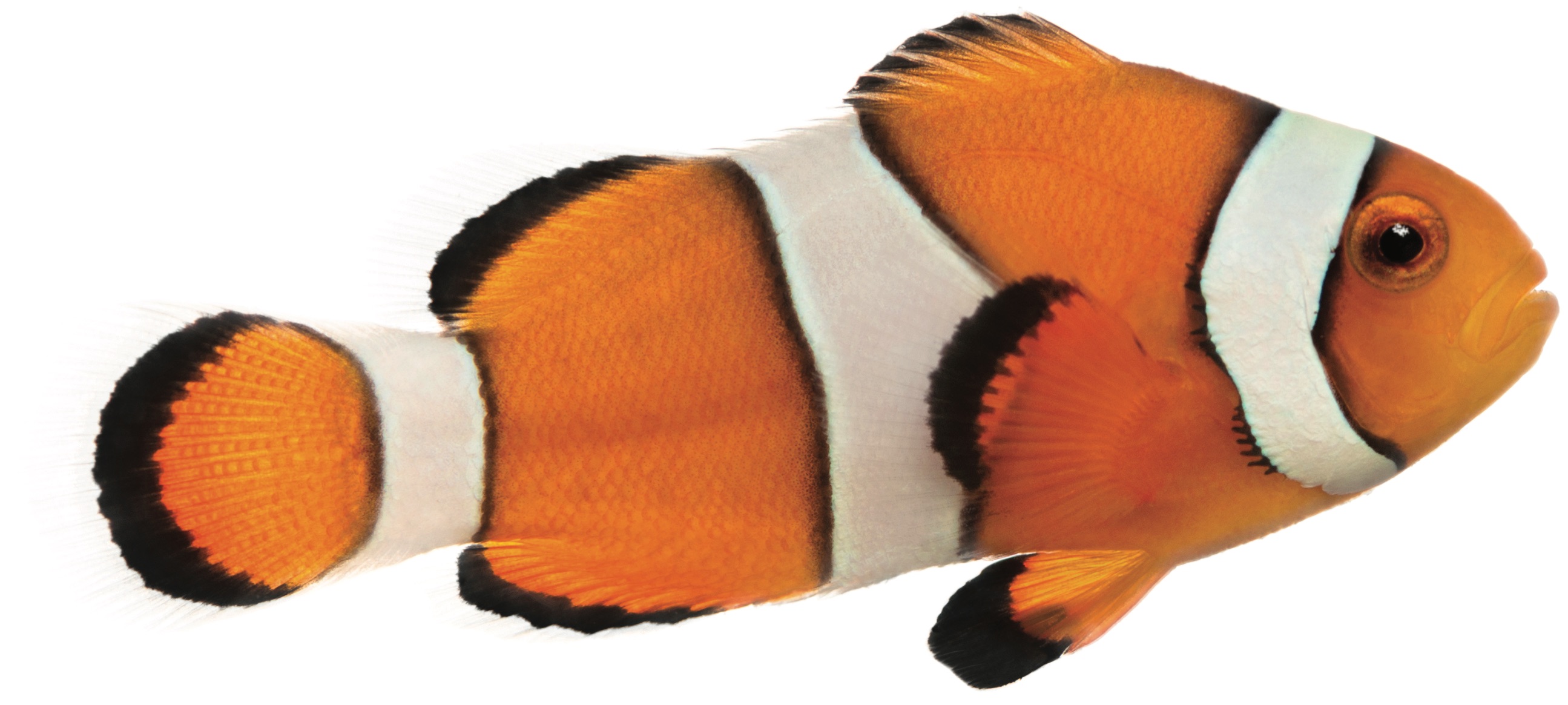
Clownfish
Amphiprion ocellaris
Class: Actinopterygii
Diet: Omnivore
Lifespan: 3-5 years
Adult weight: 5.2oz
Thanks to Disney’s Finding Nemo, the clownfish is one of the most popular reef fish species for tropical aquariums. As a saltwater species, setting up a tank to care for these fish is slightly trickier than for freshwater but very rewarding to watch them flourish.
Clownfish aren’t known for swimming long distances and so a smaller tank is just fine – especially if you include an anemone for them to make home. Once the aquarium is set up and balanced they are quite a hardy species, and these cute fish can also be very engaging – they’re known to follow you around the tank or even ask for food at feeding time!
PetsRadar Newsletter
Get the best advice, tips and top tech for your beloved Pets
Dave has over 20 years experience in publishing during which he launched many successful magazine titles including How It Works, All About Space and All About History. He’s also pet parent to a retired police dog called Rebel, who can’t work anymore due to a health condition. When’s not busy trying to amuse a boisterous, three-year-old German Shepherd, Dave's the Editor on PetsRadar.

